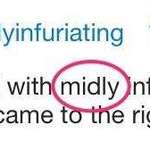The New York Times reports that thanks to big horror hits like Get Out and It, 2017 has been the biggest box office year in history for horror movies.
Get Out and It are the two most profitable, making $175 million and $300 million respectively and since so many horror movies are released in October, the numbers are expected to rise.
While this is the biggest year in history for horror, it should be noted that this genre has always been making money over the years.
Looking at the last four decades showed the year horror movies make the most profits seems to coincide with that decade’s most successful horror movie.
For example, the biggest year for horror in the 70’s was 1973 when The Exorcist was released in theaters.
In fact, it’s the highest grossing domestic horror movie of all time.
Get Out had a small budget and as such is the most profitable movie of the year. »
















